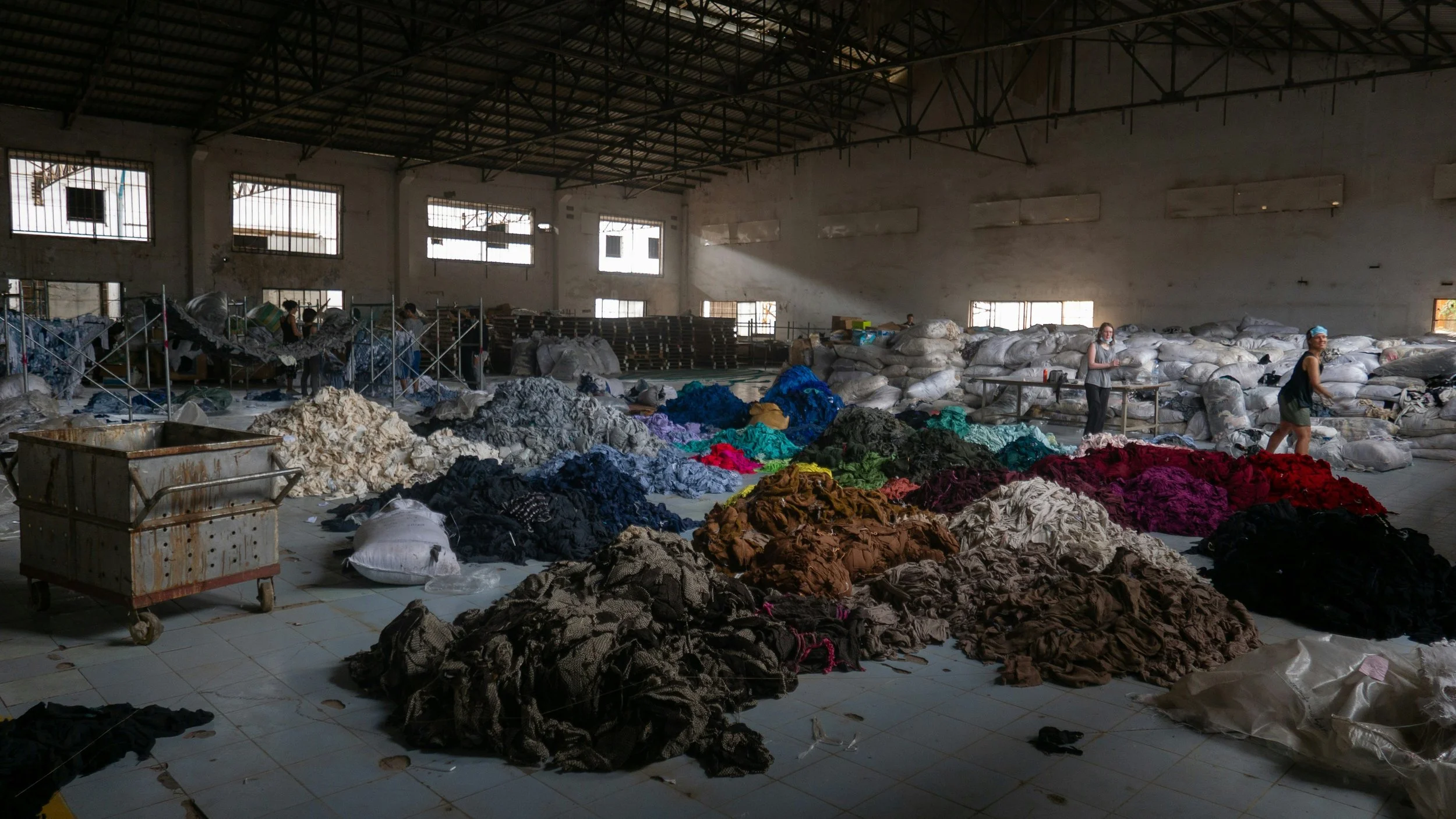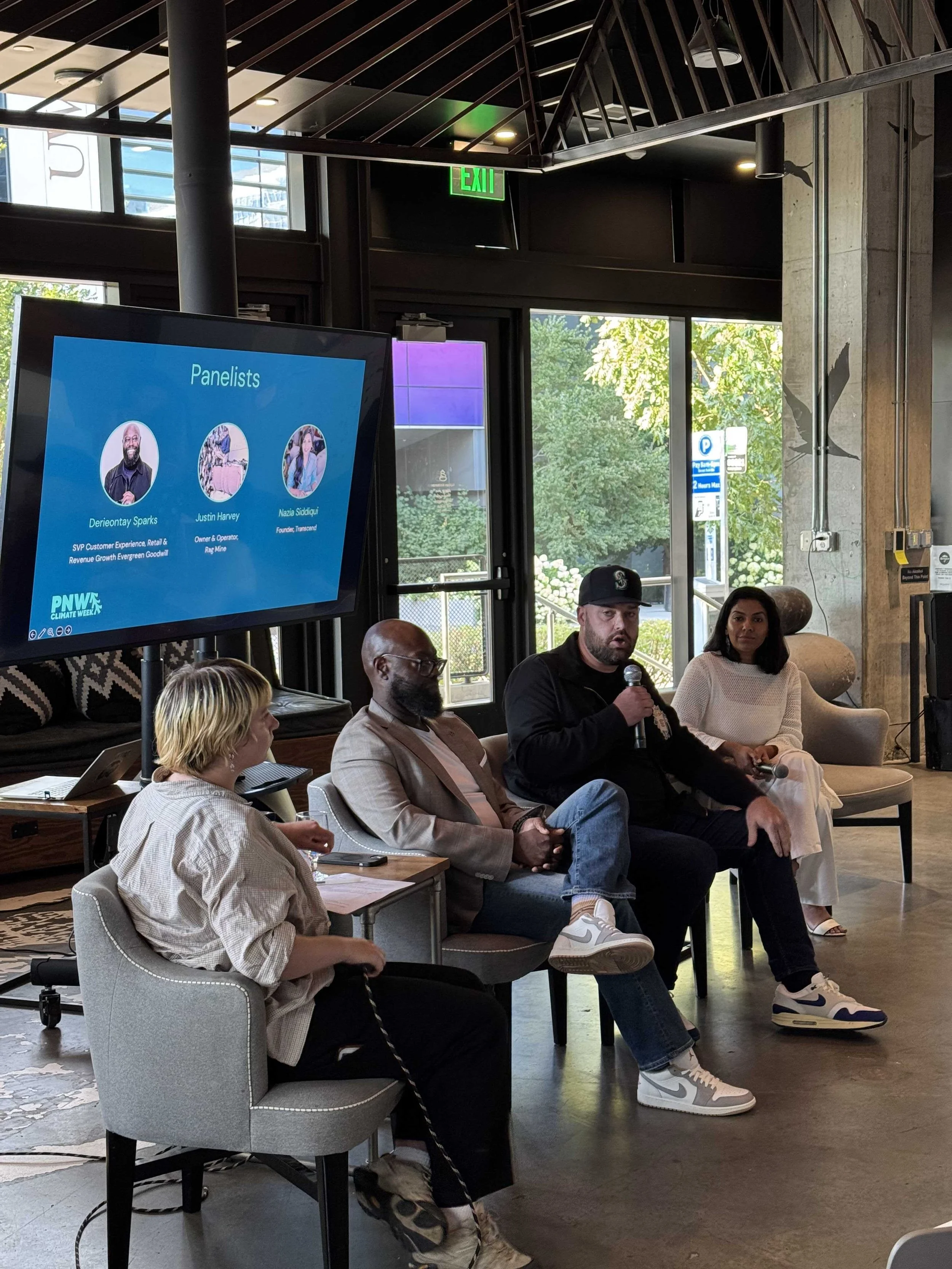JeLisa: Everyone [in fashion] has a unique story about finding themselves in sustainability. What is your story?
Cheryl: I think, being in India [was a lightbulb moment]. Just seeing how brands weren’t helping, or they were just, you know, enabling the water [sources] to get dirty—that was kind of the biggest one. By the time you get to the [major] factories, you’re like, “Oh my God, look at this.” You see fabric stacked up, and things [compound] from there. You know, once the seed is planted, everything else starts to show up in front of you.
JeLisa: Exactly. It’s like the saying: Once you see it, you can’t unsee it. How then did those experiences and that desire to, perhaps, challenge the system lead you into PNW Climate Week?
Cheryl: I have gone to a couple in the last couple [of] years, and I really enjoyed the in-depth discussions and all the different people you meet. And so this year, I saw on Luma that they were doing a planning session. I jumped into that because I wanted to see how they do it. When I was [at] Seattle Zero Waste, we did a clothing swap. You see people bring in like 100 Shein outfits, and so we ended up with [hundreds of items] to figure out what to do. So, after that, I was like, “Okay, we gotta educate the consumer more about products in general.” I thought if I joined PNW Climate Week in fashion, that we could start to build on that, because a lot of times, [dialogue is] on certifications, water reduction, and energy reduction. But, what if you can reduce [consumption], or you know, use a scary word—degrowth? I think, [there needs to be an emphasis] on the consumer end to educate them to be more aware and start planting the seeds. Kind of like how India planted the seed [for me].
JeLisa: What would you say are some of the climate challenges and solutions that have been presented either from the guest speakers or from the community so far in the events, fashion or not?
Cheryl: The Department of Commerce [talked] about regulations to build energy or build something that’s not standard somewhere in Washington State. The challenges are with smaller cities or smaller counties. They don’t always have planners, or planners that are doing single-family homes, or manufacturing, but not for energy or anything like that… So, it [covered] how to bring the planners together and educate them more, and streamline the regulations, and maybe upskill and understand regulations. I think that’s the challenge. I [also] went to the fashion show; just meeting people and having these [types of] conversations [is] fun. It’s building, you know, different connections to different organizations. PNW Climate Week is tech-heavy, climate tech-heavy, and energy-heavy. Fashion is kind of seen as, “Oh, that’s cute.” What we’re trying to [do is instill] hope. How can we build up fashion to be seen as an important part of, you know, reducing climate impact, especially out here? We’re not Portland or New York or LA.
JeLisa: Yeah, I was excited to see that fashion is still a part of the discussion. For attendees who are more interested in tech solutions, why do you think fashion should be on their radar?

